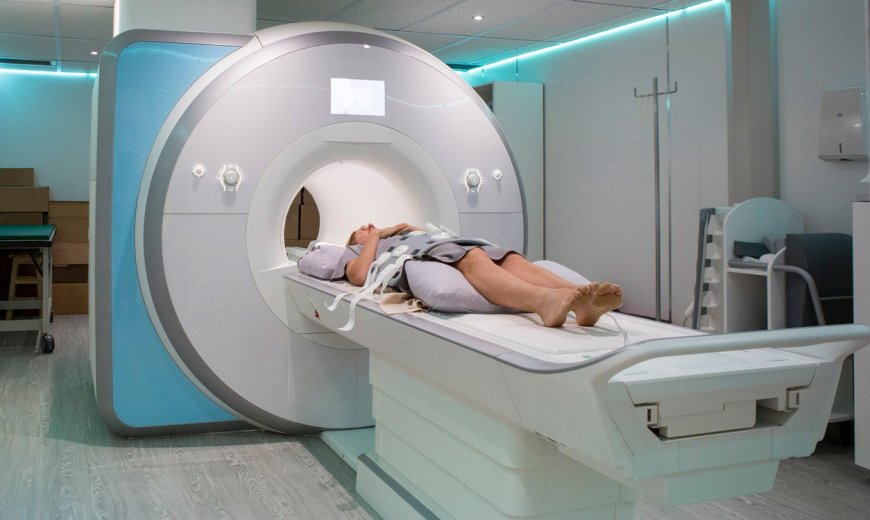Full-Body MRI Scans in Preventive Health: A Game Changer or Just a Trend?
Discover how full-body MRI scans are revolutionizing preventive health. Learn about their benefits, risks, costs, and whether they are worth it for early disease detection.

Imagine a world where you could get a comprehensive health check-up without needles, radiation, or invasive procedures—just a painless scan that detects potential health risks before they become serious. That’s the promise of full-body MRI (Magnetic Resonance Imaging) scans, a technology that is rapidly gaining popularity in the field of preventive health care.
From celebrities and Silicon Valley executives to everyday health-conscious individuals, more people are turning to full-body MRIs to get a detailed look inside their bodies. But does this technology really provide life-saving insights, or is it just an expensive health trend? Let’s dive into the facts.
What is a Full-Body MRI Scan?
A full-body MRI scan is a radiation-free imaging technique that uses strong magnetic fields and radio waves to create detailed images of internal organs, tissues, and bones. Unlike traditional health check-ups that rely on blood tests and basic screenings, full-body MRIs allow doctors to spot abnormalities that may not yet be causing symptoms.
These scans can detect early signs of:
✅ Cancerous tumors (before symptoms appear)
✅ Aneurysms (bulging blood vessels that can lead to strokes)
✅ Liver, kidney, and pancreas diseases
✅ Heart and vascular diseases
✅ Brain abnormalities, including early signs of neurodegenerative diseases
Because they are non-invasive and do not involve radiation, full-body MRIs are considered safe for repeated use, making them an appealing option for those who want regular preventive screenings.
Why Are Full-Body MRI Scans Becoming So Popular?
The rise in popularity of full-body MRI scans can be attributed to several key factors:
1. The Growing Focus on Preventive Health
Traditionally, people visit doctors after experiencing symptoms. However, modern medicine is shifting toward preventive care, where the goal is to detect and address health issues before they become serious. Full-body MRIs fit perfectly into this model by identifying potential problems early.
2. Advances in Imaging Technology
With AI-powered analysis and improved MRI machines, full-body scans have become more efficient, producing sharper, more detailed images than ever before. This makes it easier for radiologists to spot abnormalities at an early stage.
3. The Influence of High-Profile Individuals
Many high-profile individuals, including tech billionaires and celebrities, have publicly endorsed full-body MRIs as part of their longevity and wellness routines. This has contributed to increased public interest and demand.
4. The Convenience Factor
Unlike traditional check-ups that require multiple tests over several appointments, a full-body MRI scan provides a comprehensive assessment in one session, usually lasting between 60 to 90 minutes.
5. The Fear Factor: "What If I Have a Silent Disease?"
With increasing awareness of conditions like silent cancers and aneurysms, more people are seeking reassurance that they are truly healthy. A full-body MRI provides peace of mind by offering a deep look inside the body.
Potential Downsides and Controversies
While full-body MRIs sound like the ultimate health tool, they are not without criticism.
???? False Positives and Unnecessary Anxiety
MRI scans are extremely sensitive and can sometimes detect harmless abnormalities that lead to unnecessary worry, follow-up tests, or even unnecessary surgeries.
???? High Cost
The price of a full-body MRI scan ranges from $1,000 to $3,000, depending on the provider and location. Since most insurance companies do not cover elective full-body MRIs, the cost can be a significant barrier for many people.
???? Lack of Standardized Guidelines
There is no universal medical guideline that recommends routine full-body MRIs for healthy individuals. Some doctors argue that targeted MRIs (for specific concerns like brain health or heart disease) may be more effective than scanning the entire body.
Who Should Consider a Full-Body MRI?
While full-body MRI scans are not necessary for everyone, they may be particularly beneficial for:
✔️ People with a family history of cancer, aneurysms, or genetic diseases
✔️ Individuals at high risk for cardiovascular disease
✔️ Those seeking early detection of neurodegenerative conditions
✔️ Anyone who values proactive, data-driven health monitoring
If you’re considering a full-body MRI, it's essential to consult with your doctor to understand whether it aligns with your health needs.
The Future of Full-Body MRI Scans
With rapid advancements in AI-driven diagnostics and cost reductions in imaging technology, full-body MRIs are expected to become more accessible in the coming years. In the future, we may even see:
???? Insurance companies covering preventive full-body scans
???? AI-powered instant diagnoses based on MRI data
???? More widespread use in routine health check-ups
For now, full-body MRI scans remain a powerful tool for those who can afford them and who prioritize early detection in their health strategy.
Final Verdict: Should You Get a Full-Body MRI?
A full-body MRI is not a necessity for everyone, but it can be a valuable investment in preventive health—especially for those at high risk of certain conditions.
???? If you are health-conscious, have a family history of serious diseases, or simply want peace of mind, a full-body MRI might be worth considering.
???? However, if cost is a concern and you have no risk factors, traditional check-ups and targeted screenings may be sufficient.
At the end of the day, knowledge is power, and full-body MRIs are revolutionizing how we approach early disease detection. Whether they will become a mainstream standard or remain a luxury healthcare option is yet to be seen—but one thing is clear: preventive health is the future, and full-body MRIs are leading the way.
What's Your Reaction?
 Like
0
Like
0
 Dislike
0
Dislike
0
 Love
0
Love
0
 Funny
0
Funny
0
 Angry
0
Angry
0
 Sad
0
Sad
0
 Wow
0
Wow
0



















































